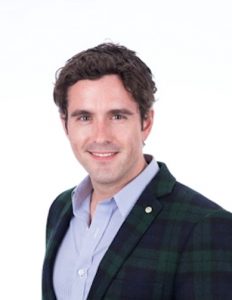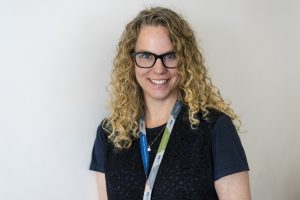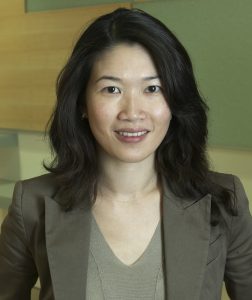Three DLSPH faculty Receive Canada Research Chairs
November 13/2018
Improving sexual and gender minority health, genome data sciences, and integrative molecular epidemiology are research priorities for three new Canada Research Chairs awarded to DLSPH faculty.
Professors Daniel Grace, Lisa Strug and Rayjean Hung received Canada Research Chairs from the Tri-agency Institutional Programs Secretariat on November 13, 2018.
“This Chair will help me examine the drivers of health inequity for sexual minority and gender diverse people and work collaboratively to improve access to sexual and mental health information and services,” said Grace, an Assistant Professor of Social and Behavioural Health Sciences who received a Tier 2 Canada Research Chair in Sexual and Gender Minority Health.
Launched in 2000, the Canada Research Chair (CRC) program is aimed at helping the country attract and retain research leaders in engineering and natural sciences, health sciences, humanities and social sciences. The program is a tri-agency initiative of the Social Sciences and Humanities Research Council, the Natural Sciences and Engineering Research Council and the Canadian Institutes of Health Research.
Grace leads an innovative research program to advance the health of gay, bisexual, queer men, trans men and other men who have sex with men in Canada and around the world. Using community-based, qualitative and mixed methods, his research aims to improve the understanding and delivery of sexual and mental health information and services — including HIV and STI interventions — for sexual and gender minorities worldwide.
From community-based research to genome sequencing, Professor Strug’s Tier 1 Chair in Genome Data Sciences will support her work that integrates whole genome sequencing using new technologies that can help uncover the genetic basis of disease.
“My research examines dark regions of the genome that were previously untouchable by using new technologies that provide unprecedented genomic resolution,” said Strug, who is an Associate Professor of Biostatistics at DLSPH.
“At the same time, we’re aiming to make these costly technologies accessible for the study of many diseases, including for Canadians with cystic fibrosis,” said Strug, who is also the Associate Director of The Centre for Applied Genomics and a senior scientist in genetics and genome biology at The Hospital for Sick Children (SickKids).
In cystic fibrosis, the methodology that Strug and her team are developing can be used to identify the genomic sequence that determines why different individuals display differences in their disease severity, and to identify alternative therapeutic targets for treatment of the disease.
Hung’s research focuses on individual’s molecular and genomic profile to identify precise targets, specifically for cancer causes and early detection. With a Tier 1 CRC in Integrative Molecular Epidemiology, Hung uses an integrative approach for population-based molecular and genomic studies to better understand the causes and risks for cancers with low survival rates.
“My research goal is to reduce cancer incidence and death by investigating the full continuum of cancer, from causes and risk prediction to detection through the lens of an individual’s genetic and molecular information,” said Hung, Associate Professor of Epidemiology at DLSPH.
“Specifically we’re examining the causes and genetic architecture of tumours in both adults and children so we can build comprehensive risk prediction models and identify high risk populations for intensive surveillance,” said Hung, also the head of the Prosserman Centre for Population Health Research at Sinai Health System’s Lunenfeld-Tanenbaum Research Institute.
Together, these researchers are looking inside the body as well as at upstream factors that led to disease and tackling some of today’s most pressing public health issues to the benefit of Canadians and people around the world.


